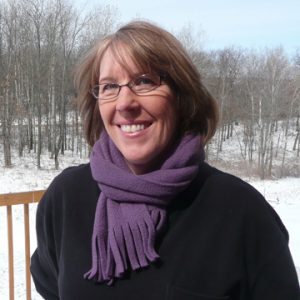Connecting STEM to Indigenous Science

Originally aired: April 29th, 2020
Presenters: Michelle Cloud and Cheryl Bauer-Armstrong
Description:
The spring walleye harvest is the time when the frogs begin to sing, the snow turns to water, and the maple sap is ready to tap. Tribal elders speak of the rich knowledge generations of Indigenous people have acquired by close observation and learning from local plants and animals. Understanding and respectfully acknowledging the interrelationships of phenomena and events in the natural world in a reciprocal and respectful way; honoring those relationships is the basis of traditional ecological knowledge. Contemporary First Nations youths, and all young people, could benefit from understanding the natural world and their relationship with it. A deeply collaborative approach between tribal, university, and K–12 partners has the potential to invigorate Indigenous youths in science endeavors, make STEM more relevant to them (and their peers), as well as foster positive school cultures.
Earth Partnership at the University of Wisconsin-Madison convened the expertise of elders and community members from Ho-Chunk, Bad River, Lac du Flambeau, Lac Courte Oreilles, and Red Cliff Nations with university social, physical, and life scientists to develop a culturally relevant environmental education program to improve experiences in science learning.
The resulting Indigenous Arts and Sciences (IAS) is an approach to environmental science education that engages Indigenous wisdom and scientific processes rooted in respect and reciprocity. While these are distinct from the more linear and chronological traditions of Western science, there are intersections at which Western sciences and Traditional ecological knowledge can meet and interact with one another to their mutual benefit.
This webinar is a story about Earth Partnership’s Indigenous Arts and Sciences—how it began, how our collaboration works, and what we have learned (and are still learning) along the way.
Presenters:
Michelle Cloud is an enrolled member of the Ho-Chunk Nation and is Division Manager for Ho-Chunk Culture & Community Education, managing the Nation’s Indigenous Arts & Sciences initiative. Michelle has experience working with Indigenous children and families as the former Title VI Parent Advisory Committee chair, Johnson O’Malley chair, and she is a national facilitator for Seeking Educational Equity & Diversity (SEED). She has a BS from Upper Iowa University in Criminal Justice and is currently pursuing an MS from University of Minnesota Duluth in Tribal Administration and Governance.
Cheryl Bauer-Armstrong is the Director of Earth Partnership Director at UW-Madison. Cheryl’s journey involving schools and communities in restoration education began at the UW-Madison Arboretum in 1994. Since becoming director of Earth Partnership in 2006, she has led the effort in initiatives to address environmental justice, water stewardship, nature connectedness, equitable education, culturally-relevant pedagogy, and community-based conservation in 22 states and in Puerto Rico. Initiatives include RESTORE, Indigenous Arts and Sciences and Latino Earth Partnership. She teaches courses in the Department of Planning and Landscape Architecture. Cheryl has an MS in Landscape Planning and Ecology from Harvard University and a BS focused on ecological restoration from UW-Madison.





